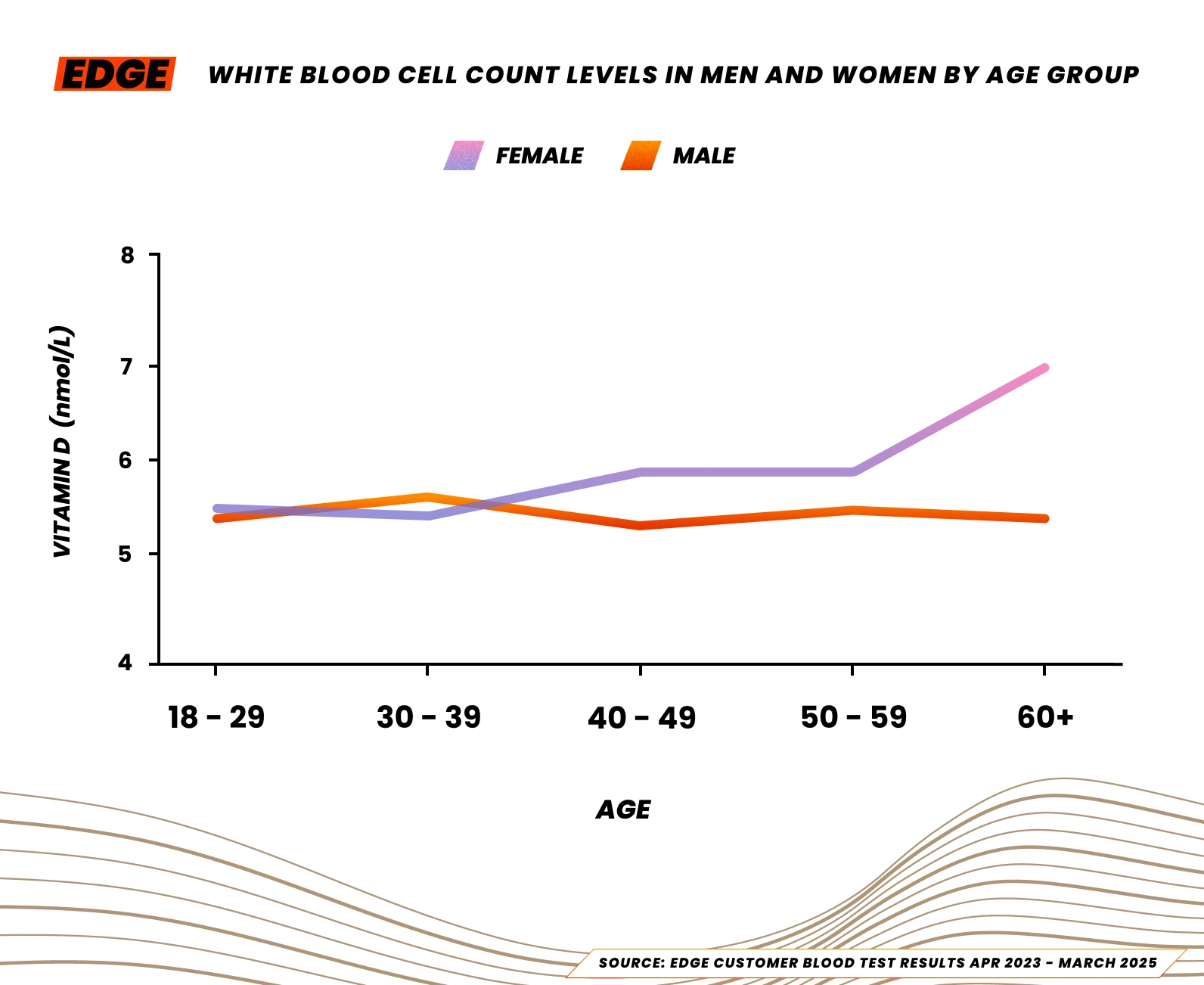What is White Blood Cell (WBC) Count & Why Is it Important for Athletes?
1 min read
Published on
May 22, 2025
Written by
EDGE
Share this article
What Is White Blood Cell (WBC) Count?
White blood cells (WBCs) are key components of the immune system, helping the body fight off illness and recover from physical stress. For athletes, WBC count can reveal how well the immune system is coping with training, travel, or illness.

"WBC count reflects immune function. Low levels are common in well trained athletes so there are subtle differences to the way the results should be interpreted based on your training status. Overly suppressed levels can indicate overtraining or low energy availability, while elevated counts may suggest infection or inflammation. I advise testing every 6 months or after illness, and reviewing alongside hs-CRP to distinguish between acute inflammation, immune suppression or training adaptation."
What are normal WBC levels for athletes?
We looked at blood test data from EDGE customers and found that the median white blood cell count level for men and women was 5.4 and 5.6, respectively.
Here is a breakdown of white blood cell count levels by age:
| Table 1: White Blood Cell Count Levels in Men and Women by Age Group (10*9/L) | ||
| Age Group | Female | Male |
| 18-29 | 5.5 | 5.4 |
| 30-39 | 5.4 | 5.6 |
| 40-49 | 5.9 | 5.3 |
| 50-59 | 5.9 | 5.5 |
| 60+ | 7.0 | 5.4 |
Source: EDGE customer blood test results Apr 2023 – March 2025.
The labs we used to analyse blood samples state that a healthy range for white blood cell count is generally between 3.6-11 (10*9/L) for women and 3.8-10.6 (10*9/L) for men.

How It Relates to Training
-
Infection Monitoring
Elevated WBCs may signal infection or inflammation. Suppressed levels may mean immune suppression from overtraining.
-
Recovery Insight
Post-training or competition, a temporarily elevated WBC is normal, but chronically high or low counts require attention.
-
Overtraining Marker
Consistently low WBCs can be a red flag for RED-S or excessive training load without recovery.
Why Test WBC?
-
After illness, to assess your recovery status
-
If you’re experiencing prolonged fatigue or frequent infections
-
As part of a complete training load and stress assessment
In Summary
-
WBC count reflects immune system function
-
Useful in identifying overtraining, illness, or recovery issues
-
Works best alongside CRP and cortisol for full stress and recovery insight
Check Your White Blood Cell Count
Check and monitor your White Blood Cell Count from home with our sports blood tests.
Get 10% off your first order
Want regular tips on how to make the most of your results? Join our newsletter and we'll give you 10% off your order!
Get the knowledge
Get expert advice to help you improve your results.
Go to our knowledge center


